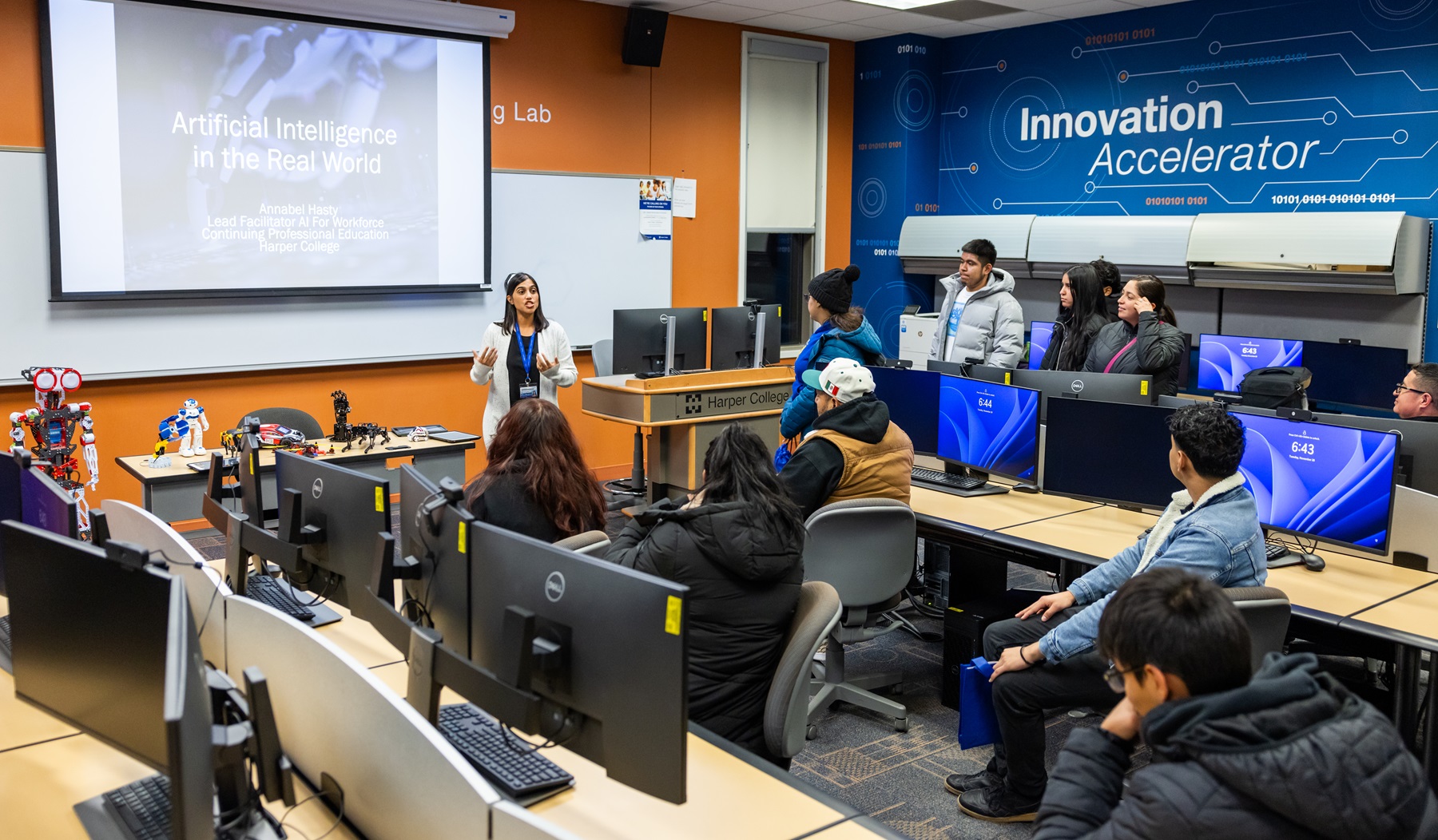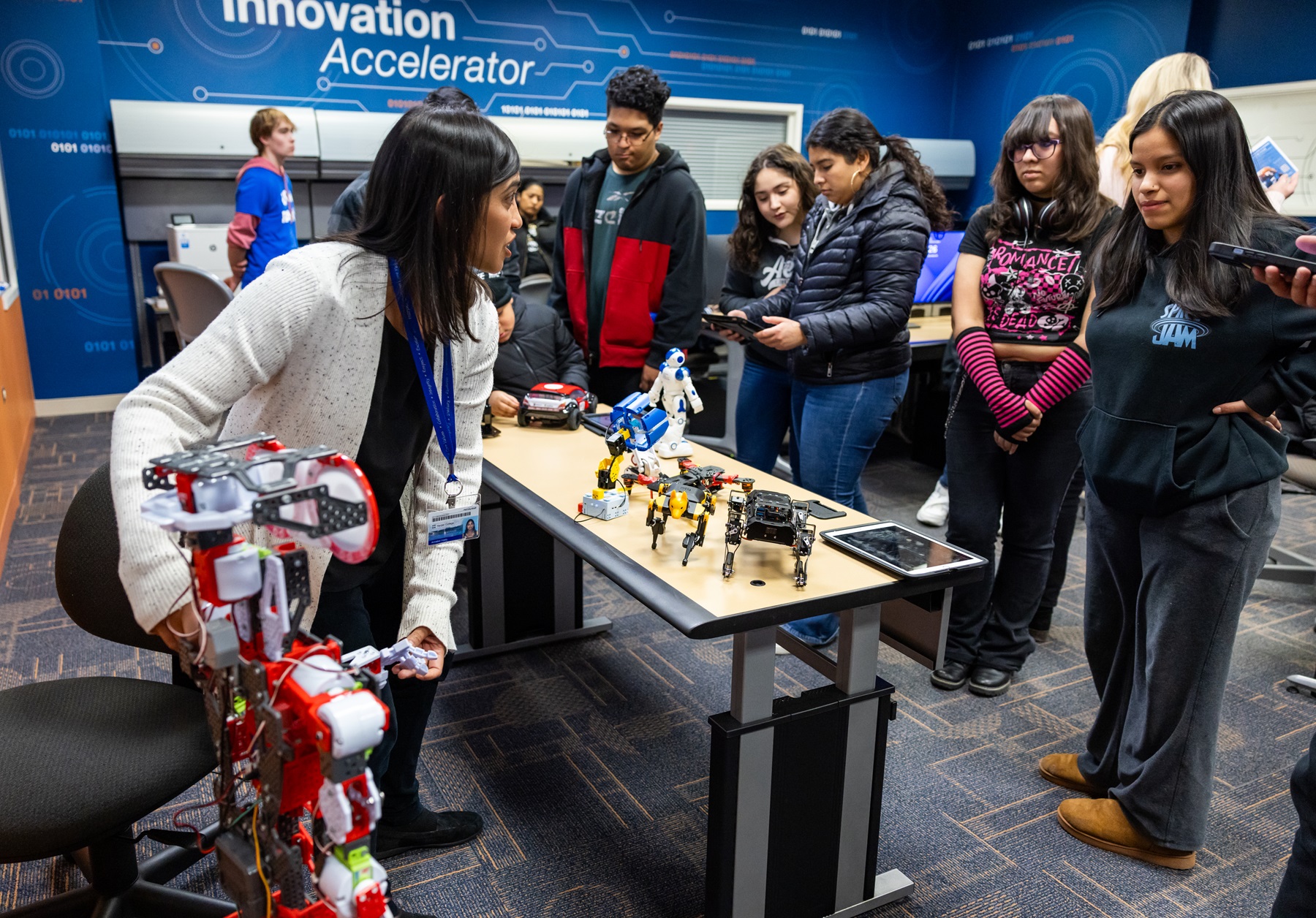
 Harper College is leading a project to reshape the landscape of employer and industry
collaboration across five community and technical colleges. It’s part of a larger
effort, supported by the National Science Foundation (NSF), designed to help the U.S.
remain a global leader in innovation by boosting investment in domestic high-tech
research and bringing semiconductor manufacturing back to the U.S.
Harper College is leading a project to reshape the landscape of employer and industry
collaboration across five community and technical colleges. It’s part of a larger
effort, supported by the National Science Foundation (NSF), designed to help the U.S.
remain a global leader in innovation by boosting investment in domestic high-tech
research and bringing semiconductor manufacturing back to the U.S.
The Harper-led project, Generating Regional Innovative Partnerships (GRIP), also includes Indiana’s Ivy Tech Community College, Mississippi Gulf Coast Community College, and Kansas’ Washburn Institute of Technology and Wichita State University Campus of Applied Sciences and Technology. Funded by a three-year, $400,000 grant, this initiative is part of the NSF’s Enabling Partnerships to Increase Innovation Capacity (EPIIC) program and stems from 2022’s CHIPS and Science Act.
“Harper is a leader in a national movement to increase innovation in our communities and prepare students for last careers in the jobs of the future,” said Dr. Avis Proctor, Harper president. “It is more critical than ever for community colleges to respond to rapidly evolving workforce demands, particularly as we look to holistically educate skilled workers for jobs created by emerging technologies.”
That objective is central to Harper’s Innovation Accelerator, which is implementing the GRIP project and forming a comprehensive framework designed to transition from traditional academic advisory committees to the acclaimed Business and Industry Leadership Team (BILT) model. This shift aims to cultivate more meaningful engagements with regional employers, industry professionals, faculty and institutional leaders. It has already proved successful with the development of Harper’s new Cybersecurity degree and certificate programs as well as Community Education courses in artificial intelligence and cloud computing.
 GRIP is also facilitating infrastructure advancements at Harper via the college’s
implementation of Salesforce to create a nexus for college employees to more fully
engage with industry partnerships. Another component of the initiative is the establishment
of a community of practice (CoP), a collaborative network of professionals, educators
and college administrators who share expertise, experiences and best practices focused
on improving educational outcomes and operational efficiencies. The GRIP CoP is instrumental
in scaling the BILT model effectively, ensuring that practices are not only applied
but shared widely among community colleges, enhancing their roles as pivotal players
in regional economic development.
GRIP is also facilitating infrastructure advancements at Harper via the college’s
implementation of Salesforce to create a nexus for college employees to more fully
engage with industry partnerships. Another component of the initiative is the establishment
of a community of practice (CoP), a collaborative network of professionals, educators
and college administrators who share expertise, experiences and best practices focused
on improving educational outcomes and operational efficiencies. The GRIP CoP is instrumental
in scaling the BILT model effectively, ensuring that practices are not only applied
but shared widely among community colleges, enhancing their roles as pivotal players
in regional economic development.
Those close ties between colleges and area industries align with a broader EPIIC objective: to build capacity for two-year institutions to participate in NSF Regional Innovation Engine grant programs, which are presently the domain of universities.
“Considering how Harper College and our GRIP partners are dialed into the workforce needs of our communities, it is exciting for our institutions to have a seat at the Regional Innovation Engine table,” said Dr. Susanne Brock, senior director of innovation and development. “As Harper College leads this ambitious project, we are setting new standards in education-industry collaboration while invigorating our regional economy by tailoring educational programs to better meet industry needs. By integrating industry insights directly into our curricula and programming, Harper aims to significantly boost the employability and readiness of its graduates through the GRIP project.”